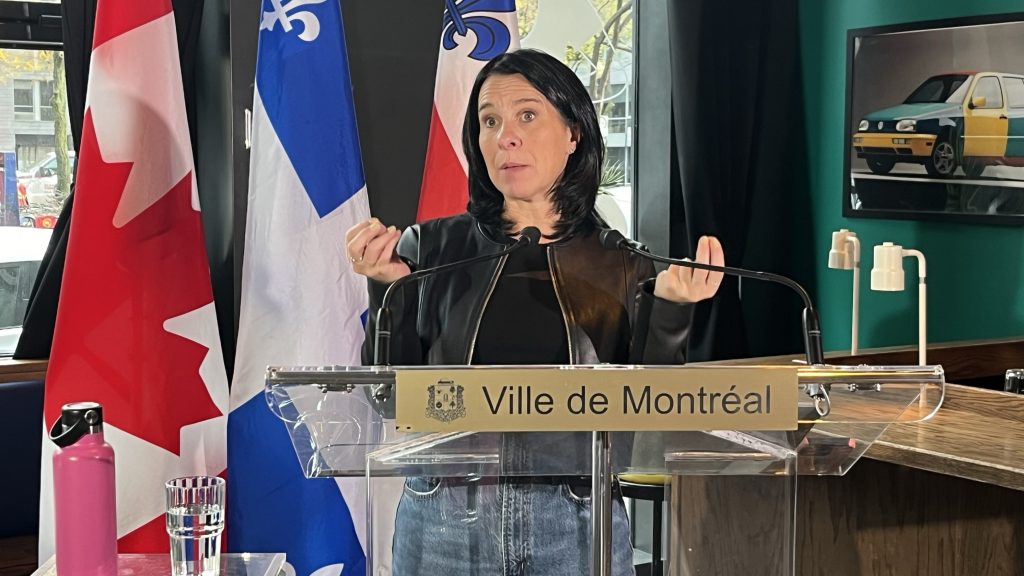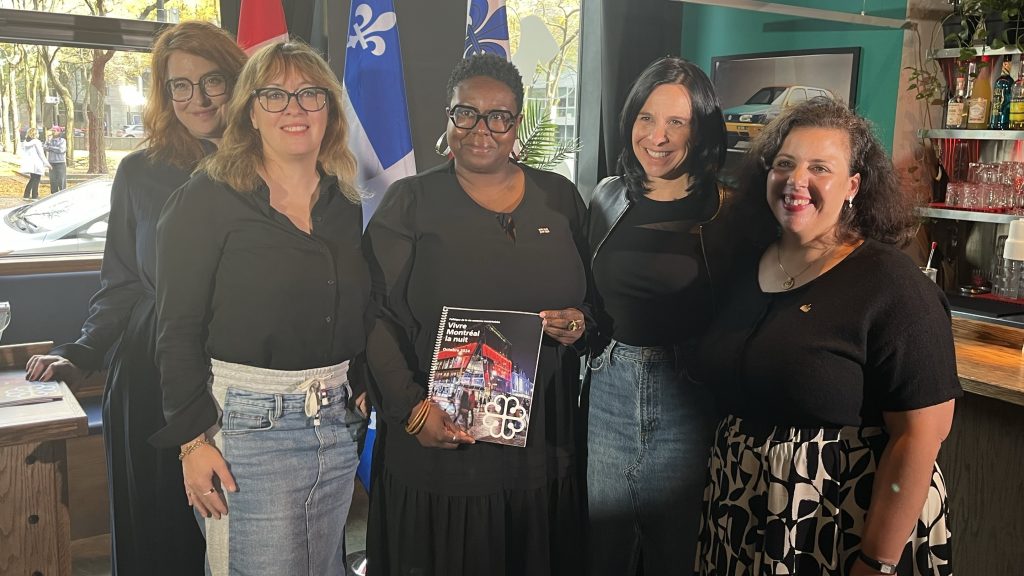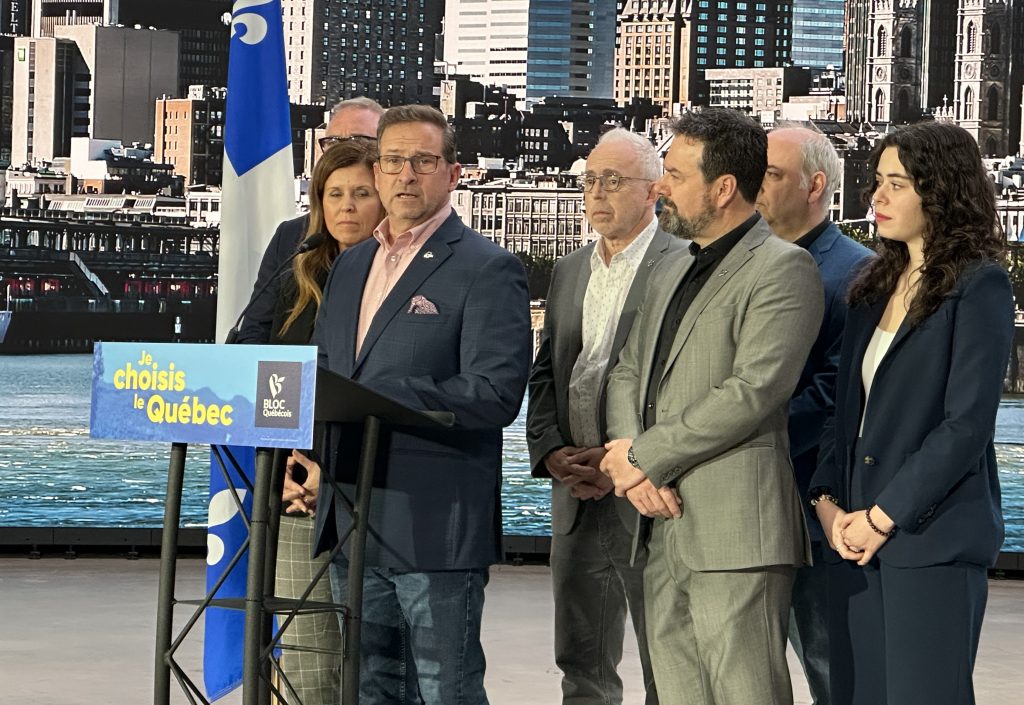$5.5M for Montreal’s nightlife revitalization project

Posted October 30, 2024 11:44 am.
Last Updated October 30, 2024 6:19 pm.
The City of Montreal is allocating $5.5 million over three years towards its project of strengthening the city’s nightlife.
The city says $3 million will be used to implement a variety of projects – including the creation of nightlife vitality hubs – while the other $2.5 million will be used for a grant program to soundproof small concert and cultural venues with fewer than 3,000 seats.
“We’re telling people working within the nightlife, you matter, you’re a business, you bring money, you contribute to the vitality and reputation of Montreal,” said Mayor Valérie Plante.
The announcement comes exactly nine months after Montreal first revealed it was dedicated to boosting nightlife activities, which it says will strengthen its economic and cultural potential.
Businesses in nightlife hubs will be allowed to extend their opening hours beyond 3 a.m. and “allow the implementation of any other measure aimed at facilitating nightlife,” the city says. The first districts could be set up as early as next May, and the city is calling on its partners to submit projects.
“I think it’s fantastic that the city is opening this up as a possibility,” said Oliver Philbin-Briscoe, the co-founder of Fédération pour les Arts Nocturnes comprenant les Travailleur·euses et Organisateur·ices de Montréal (FANTOM). “I think it’s something where we’ve seen very specific events be permitted to do this in the past few years. And those events have generally gone off without issue. So I think that’s a great step in the right direction.”
The Chamber of Commerce of Metropolitan Montreal also welcomed the revitalization project.
“As in many cases, the challenge will be to successfully harmonize regulations between the different boroughs,” said the group’s president and CEO Michel Leblanc in a statement. “The policy announced today, if properly deployed, should help position Montreal among the continent’s major nightlife metropolises.”
The Opposition in Montreal says the city’s plan lacks details, especially regarding the nightlife hubs.
“Right now we don’t know how many (hubs) there is going to be,” said Julien Hénault-Ratelle, Ensemble Montréal’s critic for economic development. “We don’t know where they’re going to be. We don’t know how many there is going to be. So it’s really hard to follow the Plante administration right now in terms of the zoning in Montreal.”
The city’s plan would also see certain night-time cultural establishments receive a special status aimed at developing “a personalized approach to noise management for the establishment.”
That’s because a big part of the project includes ensuring those living in the nightlife neighbourhoods in question are not negatively impacted – hence the soundproofing grant.
“We are providing Montreal with concrete tools to support nighttime vitality, while remaining attentive to the needs of each neighbourhood,” Plante said.
“It’s also a message to send to everybody that if you live in a neighbourhood, if there’s been a theatre or a venue for years that’s been there before you actually moved there, it’s part of the value of that neighbourhood. It’s part of what makes it special. Now the city, we need to mitigate. This is why soundproof is a great example, but we need to continue.”

The city’s noise bylaws came under fire and intense scrutiny just last month after Plateau-Mont-Royal concert venue La Tulipe felt forced to close its doors after the Quebec Court of Appeal ordered it to prevent any noise from being heard by residents of the building next door.
In response, the Plateau modified a specific bylaw so that it no longer applied to concert halls, bars and restaurants.
Jon Weisz, executive director of Les scènes de musique alternatives du Québec, called the $2.5 million for soundproofing “fine.”
“But soundproofing isn’t the venues’ main issue,” Weisz explained. “The main issue is that they don’t have money to operate and to exercise their cultural mandate. And the soundproofing money is only necessary because the noise bylaws are so maladapted to the ground-level realities that the city is needing to come and solve a problem that it itself created.
“The real issue is that venues don’t have access to proper funding. The red tape that venues have to go through is ridiculous. There wasn’t a lot of concrete measures that addressed the real root of a lot of the problems that we’re seeing.”
Also part of the city’s nightlife project: a dedication to cleanliness; promoting nighttime mobility; and developing strategies to manage crime.
Officials add they are setting up a multidisciplinary group made up of various nightlife partners, including economic and cultural actors, Montreal police, the fire department, and leaders from the affected boroughs.
The city also says it has created a roundtable co-chaired by Ericka Alneus, the executive committee member responsible for culture, heritage, gastronomy and nightlife; and Jenny Thibault, general director of the Société des arts technologiques (SAT).









